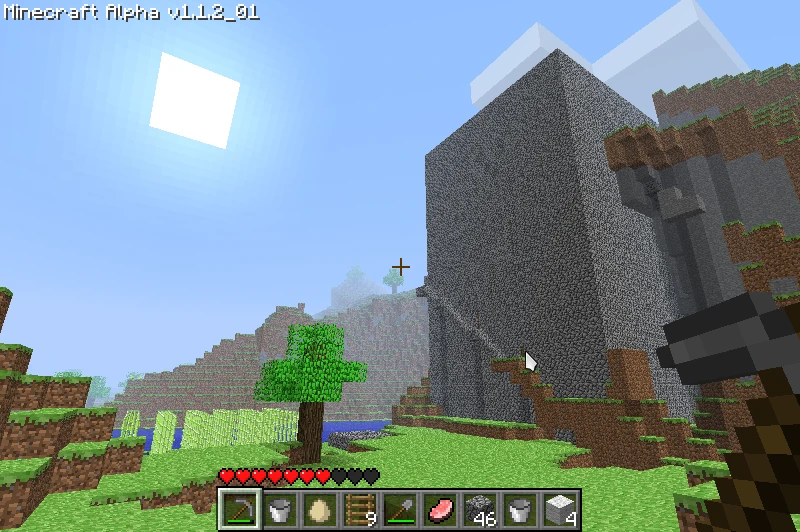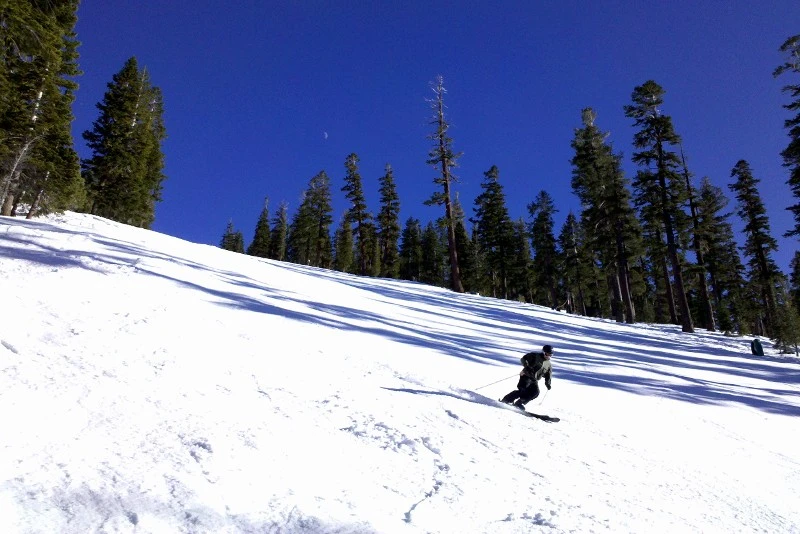I think the most terrifying part of A mathematical model for the determination of total area under glucose tolerance and other metabolic curves is the abstract’s implication that medical researchers were, before this groundbreaking application of Riemann sums, unable to find the area under an experimentally obtained curve.
75 citations? Really?
Yesterday I had a sore throat and it rained for hours and hours. I spent the whole time working on various side projects and playing Minecraft. As my new mining operation and tree farm are several kilometers distant from the spawn point, being eaten by spiders and walking five minutes back to the cave to get eaten again got tiresome. I needed pig meat–or better yet, delicious, even more life-sustaining bacon.
But pigs are hard to come by, and killing them is time consuming. Luckily, these delicious creatures will appear anywhere grass is present, which led to the construction of The Facility.

There are some songs which are incredibly close to me. I resonate so closely with them that they are not so much something I enjoy–but a defining element of my emotional core. Like the books you read growing up which you not only remember fondly but strive to fulfill. I’d like to write a little bit about these songs, and try to understand why.
Nik Olendzki, a good friend and fellow Aikidoist at Carleton, introduced me to Carbon Leaf. It was a regular part of the soundtrack at The Quad of Flying Daggers–I remember it echoing from beer-encrusted laminate flooring as you rounded the top flight of stairs, still bundled up in winter coats. The first time I heard it everyone in the room stopped and listened, for a minute, just to reflect.
I feel like a kite high in a tree
Is this where I'm suppose to be?
I wish I was a little boy
When love was taken care of
We’ve been talking at the office about wireless devices receiving video. I’ve been wondering: will cell phone data services keep getting faster? Or is 4G actually running up against the physical limits of the spectrum?
As it turns out, the Shannon entropy limit for these kinds of channels is roughly 6 bits/second per Hz. 4g radios are approaching 5 bps/Hz. Technologically, at least, we’re almost out of room. We can push about 50Mbps over a 4g link, given the allotted frequency space for wireless data. The only real improvement we can make is to repartition the spectrum.
My new life plan is to install one of these underground shelters in a suburban lot, then turn around and sell the land above it to a developer for a regular house. An unsuspecting family will dwell above me. When God finally smites our country for allowing gays in the military, and the currency collapses due to an overwhelming influx of foreigners, I’ll rest safely knowing the Tea Party Marauders will go for the decoy house. Stealth living at its finest!
Seriously, how sweet is this subgenus?
Before finding and invading a host colony, a Psithyrus female (there is no caste system in these species) will feed directly from flowers. Once she has infiltrated a host colony, the Psithyrus female will kill or subdue the queen of that colony and forcibly (using pheromones and/or physical attacks) “enslave” the workers of that colony to feed her and her developing young. When the young emerge, they leave the colony to mate, and the females seek out other nests to attack.
The more I learn about bees, the more I think there’s an amazing real-time strategy game waiting to be made.

You’d think they would give up at some point, but no, this keeps happening.
Sometimes people who are autistic-spectrum have difficulty parsing the implicit meaning of speech, including intonation and body language. Songs are chock-full of conflicting expressions like “Yeah oh no no yeah” and “Oh whoah oh”. This actually drives me nuts when I hear it—I think “make up your mind! Is it yes or no?”
Do autistic-spectrum individuals have trouble interpreting lyrics like these? How does it change their experience of music?
One of my professors, Arjendu Pattanayak, used to defer hairy questions in class with “That’s a beer question—meaning, buy me a beer at the pub, and we’ll talk about it.”
In that spirit, I will buy anyone who can explain this as many beers as it takes:
In general relativity, spacetime curvature is proportional to the stress-energy tensor T. T’s components are basically four-momentum density and flux, which are characterized as “momentum” and “energy”. Photons count. So do other particles with with four-momentum. Does anything else contribute? Electrostatics? The vector potential? The strong nuclear force? What is it that makes something contribute to T?
I’ve read a few critiques of consequentialism recently, and am starting to get pissed off. Not because I harbor an affinity for any particular brand of consequential morality, but because I believe we don’t have any other options.
What are morals, anyway?
As far as I can ascertain, morality is a construct of sentience. No morality detector exists. The universe just doesn’t care. Every single moral statement I have ever encountered has arisen from the mind of a human being. Moreover, the fact that it is possible to find two people who disagree on the morality of almost any action strongly suggests that if there is some moral code outside our own heads, we’re remarkably bad at listening to it.

